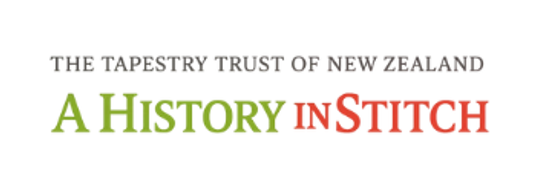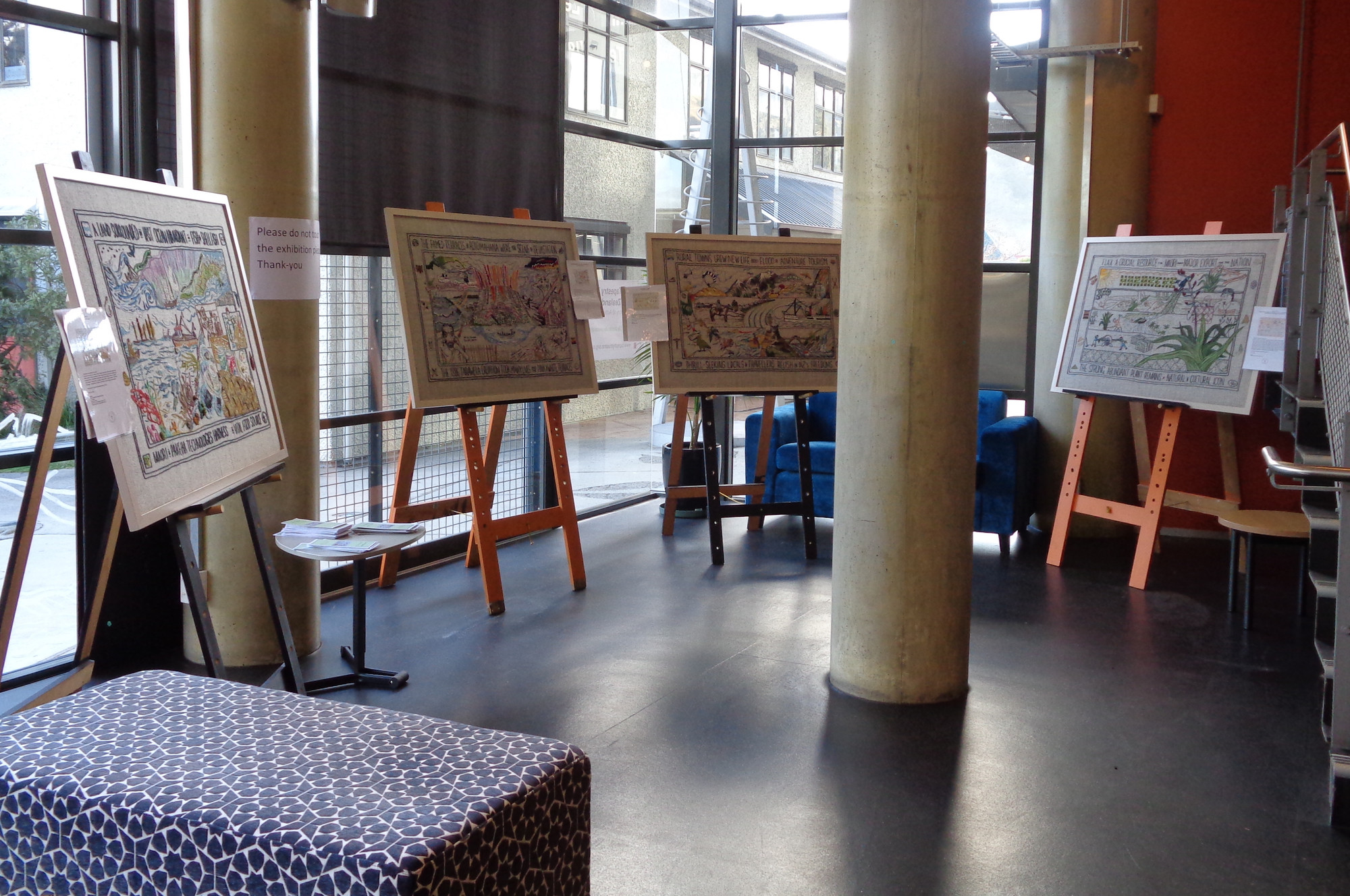Are YOU Interested?
How to get involved
If your guild or stitch group would like to become involved in stitching a panel for us then the first step is to contact us at:
Your request will be referred to a specific trust member who will become your personal contact throughout the sometimes lengthy process of getting started.
Sometimes we would like input from you to assist the designers and sometimes there will be panels already designed and just waiting for a group of stitchers.
Materials
The background woollen cloth is grown in New Zealand and woven specially for this project by a small mill named Stansborough in Lower Hutt. Wool was the fabric recommended by conservation experts. The embroidery is being worked mainly in Appleton’s threads donated by the Otago Guild, and locally-produced Strand woollen threads. The folding frames, with removable legs. were designed by David Jaquiery who made the prototypes. All panels are laced on to acid free card and then framed for us by Robert Erskine.
Design
The panel designs in progress are by local designers and illustrators Alex Gilks, Georgina Young, Tessa Petley, Daniel Mead and Anne Jaquiery. Others who have been helping with the design and research are Michael Findlay, Emma Francesca and Mischa Hill. The process takes time, involving research, sketching, and developing the designs before they are drawn on to the fabric. The guild is first sent sketches and notes about subject matter, then a sketch design, then a more carefully-worked and coloured design.
There are some visual elements that are consistent across all panels, such as a ‘legend’ (short text statement) framing the top and bottom, and small motifs to be stitched either side of the main image and in the corners. The final size of all panels is 100 x 66cm.
It is then mounted on to a folding frame with removeable legs and couriered up or down the country to a local guild or stitch group for stitching.
Stitching
Then the hard work begins.
The particular guild receives its mounted panel, along with printed colour versions of the design, and different coloured threads that could work well with the design they are stitching.
Stitchers are encouraged to interpret the design creatively onto the fabric.
In terms of technique, detail, interpreting drawn marks into stitched marks or textures or fills the samples shown below may prove helpful but groups will have their own ideas of how best to create their design.

